Biofeedback is an computer-aided method to learn to alter ones own bodily processes. By measuring and simultaneously monitoring ("feeding-back") a physiological function, everyone can have insight in processes of their own body and the relation to ongoing mental and physical behavior. This enables one - with the aid of a trained biofeedback practitioner - to learn to voluntarily control a chosen physiological function. Functions like heart rate, muscular tension, respiration or blood flow are usually measured and displayed on a computer screen or fed back via loud speakers. During a biofeedback training a person acquires a skill that enables him or her to eventually control bodily processes even without the aid of a biofeedback machine. In summary, biofeedback encompasses learning of body awareness (correctly detecting of bodily changes), self control and self healing.
Is biofeedback an effective method?
Biofeedback is an internationally established method in the fields of clinical psychology, psychotherapy and medicine. The method was first studied in animal research. Starting in the seventies of this century, biofeedback has been applied for the treatment of a variety of disorders in humans. The clinical effectiveness of biofeedback has been established in a large body of international research. In Austria, research on biofeedback is currently being undertaken at the Universities of Vienna, Graz and Klagenfurt.
Which disorders can be treated with biofeedback?
According to accepted scientific standards, biofeedback can be used successfully for the treatment of following disorders, when the treatment is conducted by a skilled professional:
- anxiety disorders
- asthma (some cases)
- attention deficit disorder
- chronic back pain
- circulation problems of the finger and toes
- grinding of teeth
- headache (tension type)
- hypertension (when stress-related)
- incontinence fecal
- incontinence urinary
- migraine
- panic
- paralysis
- sleeping disorders (some types)
- torticollis
There are also a number of other disorders where biofeedback can be used successfully, but they have not been entered into the list as their efficacy is still currently being researched. Additionally, biofeedback is also an power instrument to learn relaxation and other forms of increasing ones peak performance as for example in sports.
How long can one expect a biofeedback-training to take?
The duration of a biofeedback training depends on the type of disorder being treated. Chronic pain like migraine, tension type headache or chronic back pain, but also anxiety and incontinence can be usually treated in 8 to 16 session. For problems like high blood pressure or asthma, 10 to 20 sessions are usually necessary. For the treatment of neurological disorders like torticollis, paralysis due to stroke or a spinal cord injury and attentions deficit disorders a minimum of 20 sessions is usually required.
What are the costs for biofeedback-training in Austria?
In private practices a 50 minute session of biofeedback costs between 70,- and 80,- Euro. Some private insurance companies reimburse the costs for biofeedback-treatment when it is conducted by a medical doctor of clinical psychologist. If biofeedback is used in the context of psychotherapy by an licensed psychotherapist, ~21 Euro will be reimburse by public health insurance per session for certain diagnosis. In some hospitals biofeedback treatment is offered without costs.
Who is qualified to conduct a biofeedback-training?
Medical doctors, clinical psychologists and psychotherapists are accredited as "biofeedback-therapists" by the Austrian Society for Biofeedback and Psychophysiology after they have completed the required biofeedback-curricula. All other health or training professions like sport-scientist, nurses, physiotherapists etc. are accredited as "biofeedback-trainers" by the Society after they have completed the required biofeedback-curricula. The Austrian Society for Biofeedback and Psychophysiology provides a list of accredited biofeedback-therapists and -trainers who have completed a 1 1/2 year curricula in biofeedback and have proven their practical abilities.
Where can I find a biofeedback-therapist or a biofeedback-trainer?
The Austrian Society for Biofeedback and Psychophysiology provides a list of accredited biofeedback-therapists and –trainers (German Version only).
